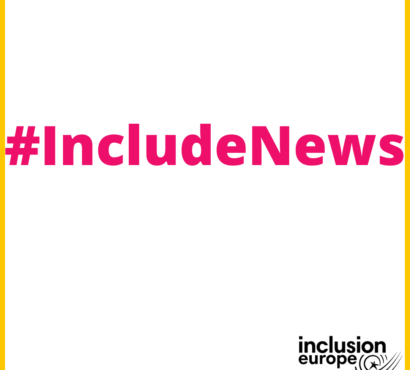European organisation to protect human rights
The Council of Europe is an organisation protecting human rights in Europe.
Inclusion Europe works with the Council of Europe to promote the rights of people with intellectual disabilities and their families.
The Council of Europe is different to the European Union. Council of Europe consists of 47 member states.
Why is the Council of Europe important to people with intellectual disabilities and their families?
The Council of Europe has instruments and institutions that are especially important to people with intellectual disabilities and their families:
- The European Convention on Human Rights. The convention, which came into force in 1953, was the first instrument to implement some of the rights stated in the Universal Declaration of Human Rights and make them binding.
- The European Court of Human Rights, which for example ruled in 2012 that the right to be free from torture and ill-treatment had been violated in the case of a person with a disability. It was also the first time the Court found the right to liberty had been violated in a social care case.
- The Istanbul convention on violence against women and domestic violence, which is important for ending violence against women with intellectual disabilities
- The Commissioner for Human Rights. The task of the Commissioner is to promote awareness of and respect for human rights in the 47 Council of Europe member states. He or she examines the human rights situation during regular visits to these states, talking to both governments and civil society. In 2017, for example, the Commissioner published a report about education.
- The European Social Charter (see below).
European Social Charter
The European Social Charter is a Council of Europe treaty that guarantees fundamental social and economic rights. It guarantees a broad range of everyday human rights related to employment, housing, health, education, social protection and welfare:
- European Social Charter text (.pdf)
- Country profiles on Social Charter
Collective Complaints
The procedure was introduced in 1995. The aim was to increase the effectiveness, speed and impact of the implementation of the Charter.
Inclusion Europe (together with partner organisations) submitted 2 collective complaints:
Complaint against Belgium
The complaint is about children with intellectual disabilities being segregated and discriminated in education in Wallonia (region on Belgium).
The complaint was successful, with the Committee condemning Belgium in its decision.
Complaint against France
The complaint covers many aspects of life of people with disabilities in France. It alleges discrimination they face in all kinds of situations.
Oviedo Convention
We are urging the Council of Europe to stop the work on the Optional Protocol to the Oviedo Convention, as the document is harmful to people with intellectual disabilities.
Elections and political participation
In 2012 Inclusion Europe prepared an easy-to-read document requested by the Council of Europe: Recommendations from the Council of Europe to European governments: How to make sure people with disabilities can take part in political and public life (.pdf)
Inclusion Europe is member of the Conference of International Non-governmental Organisations (Conference of INGOs), which is consulted on relevant topics.







